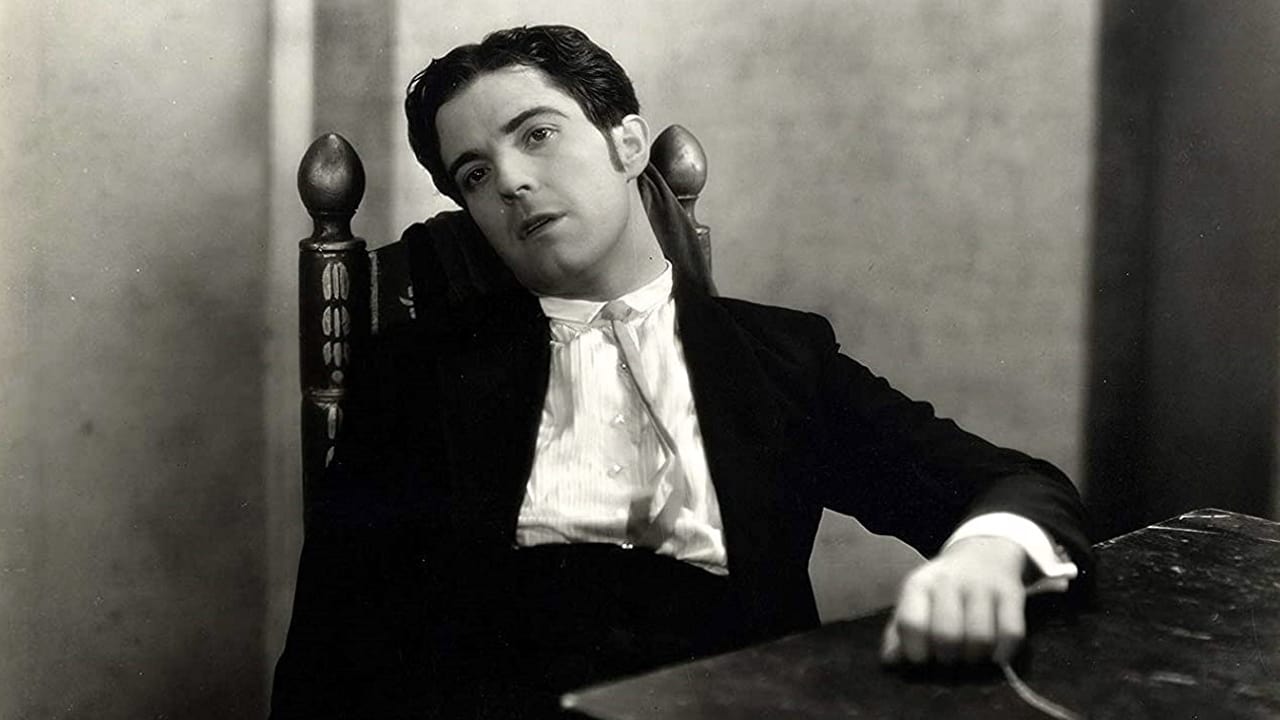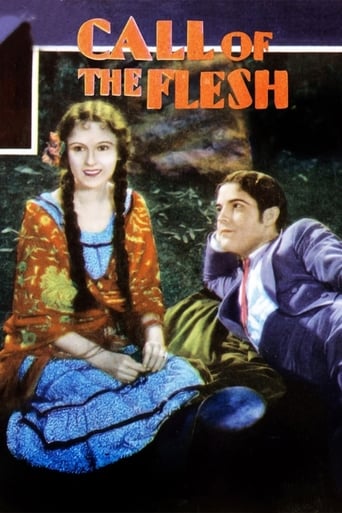Gurlyndrobb
While it doesn't offer any answers, it both thrills and makes you think.
Robert Joyner
The plot isn't so bad, but the pace of storytelling is too slow which makes people bored. Certain moments are so obvious and unnecessary for the main plot. I would've fast-forwarded those moments if it was an online streaming. The ending looks like implying a sequel, not sure if this movie will get one
Sabah Hensley
This is a dark and sometimes deeply uncomfortable drama
Marva-nova
Amazing worth wacthing. So good. Biased but well made with many good points.
calvinnme
I realize that this is an operetta from the first generation of early sound musicals, but the film could have benefited from tighter pacing and therefore a shorter running time. There is no portion of the movie that I would call padding - it all seems necessary to tell the story and maintain the atmosphere, but there are lulls here and there that are short in and of themselves that begin to add up. Plus there is virtually no back-scoring in this film, also typical for early sound, that just makes the lulls seem more pronounced. The story opens at a convent in Spain as a group of postulates prepare to take their vows and become actual nuns. Maria Vargas (Dorothy Jordon) gets a visit from her soldier brother Enrique (Russell Hopton). From their conversation it is clear that Maria is here because her entire family wants a nun in the family, not because of any independent will on Maria's part. As a result of a weird and possibly unfortunate choice of zoning, Maria hears Juan de Dios (Ramon Navarro) singing at the cabaret next door. (What is a cabaret doing next to a convent???) Maria climbs up to the top of the convent wall, sees Juan and it is love at first sight. This is most unfortunate for her, since Juan de Dios seems to love nothing but trouble. Maria, who has not yet taken her vows, runs away from the convent in search of him.Juan callously casts girls aside, steals from local vendors for the thrill of it all, and then runs across Maria staring at him adoringly as he evades the police for the latest chaos he has caused at the market. He takes the girl in and takes advantage of the fact that she obviously adores him to have her cook for him, clean for him, and take extraordinary criticism from him anytime he wants to feel better about himself - however relations between them are squeaky clean thus belying the film's title. In what seems like a bit of miscasting, Ernest Torrence, a big craggy mountain of a man who looks like he should be playing a pirate sailing the seven seas, instead plays Juan's mentor and voice instructor. Why he puts up with this selfish kid's abuse and insubordination is beyond me. There is a reason for making Navarro's character so unlikable though. At his audition for the opera in Madrid, Juan's mentor is told that Juan will never be a great singer because his heart has not been broken - there s no there there in short. Since Juan seems to have no heart that could possibly ever be broken it seems like his soul and his singing have hit a dead end. What can turn all of this around? Watch and find out.Dorothy Jordan starred opposite Navarro in the first three of his sound films - this was their third appearance together. Navarro had been an effective romantic lead in the silent era, but the coming of sound both blessed him and cursed him. It blessed him by allowing MGM to showcase his marvelous tenor voice. Sound cursed him because the pitch of his speaking voice projected sweetness rather than masculinity. This would explain Jordan as a frequent costar. Yes, she was a talented singer whose voice meshed well with his, but she was also capable of being femininely unintimidating which made Navarro's lack of machismo in sound films less stark. For example, in this film she is almost mimicking Minnie Mouse in her diminutive portrayal of Maria. Once more powerful female sound stars begin to take the field such as Barbara Stanwyck and Jean Harlow, there was just no way Navarro could hope to hold on to the leading roles he had once had, especially after musicals went out of fashion for a couple of years starting at the end of 1930. I'd recommend this one because it is put together pretty well although it does have that characteristic of MGM films of the time - an abrupt right turn in the plot that causes an outlandish happy ending for all concerned.
JohnHowardReid
By no means a "B" film in budget, but definitely one in story and technique. After seeing this effort, it's remarkably easy to understand why Novarro's stellar career declined so rapidly and dramatically in the sound era. It's not that there's anything wrong with his voice, it's just that his acting seems so ludicrously inept and his personality so colorless and lacking in charisma. Mind you, if you turn off the sound, then Novarro's gestures and even his persona appear quite acceptable. But with sound in this film, he's just ridiculous! True, the script itself is a load of old romantic melodrama that's about impossible to stomach, let alone get involved in. The only way to rescue this sort of operettish stew from the throw-out pot, is to pep it up with flair and imagination. Unfortunately, Charles Brabin is not this sort of chef – at least not here. He did learn his lesson, but here his direction is little more than disinterested and/or routine. Even the sets lack the pictorial qualities we usually associate with Cedric Gibbons. The sound recording of course is poor. But at least the photography in the present wholly black-and-white version telecast by TCM retains appeal.
Ron Oliver
A brash cantina singer in Sevilla heeds the CALL OF THE FLESH when he romances a young postulant from a nearby convent.Sometimes movie studios make most unwise decisions, resulting in ramifications that can be quite detrimental to the careers of even their biggest stars. CALL OF THE FLESH is a case in point. Good production values & fine performances can not save this film from its one fatal flaw: it is difficult to like, or even tolerate, the hero.Ramon Novarro, usually quite the pleasant fellow, here is forced to play a repellent rogue who quickly irritates the audience with his cruel treatment of those who love him most. Oozing a smarmy charm, he alternately smirks & pouts his way through the plot, until his eventual - and much belated - regeneration. Novarro's undoubted acting abilities enable him to deliver a fine performance, but mischievousness mixed with too much meanness can result in viewer apathy.This did not help his career. The fad for the Latin Lover was wearing mighty thin already and would soon be completely eclipsed by the All American Hero, and Novarro's sexual ambiguity was always a bit of a problem for the MGM front office. The advent of Sound, while finally revealing his strong singing voice, also exhibited his Mexican accent, making it difficult to cast him in traditional roles. The Studio simply couldn't come up with a definitive screen persona for him, and so Novarro was made into their ethnic chameleon, playing everything from Chinese to Arab to Navajo.Novarro's costars come through very well. Dorothy Jordan is radiant as the innocent young woman who loves him with every fiber of her being; she delivers a heart touching, memorable performance. Flamboyant & hammy, Scottish actor Ernest Torrence is terrific as Novarro's friend & mentor - although one has to wonder just why he was willing to put up with so much nonsense from the little squirt. Equally adept at drama or comedy, Torrence's theatrical mannerisms and the contortions of his great homely face make him both entertaining to the audience and an enjoyable contrast to handsome Novarro. French actress Renée Adorée, in her final film, stirs up the flames in her role as Novarro's musical partner & lover. (Ill health would bring about the early deaths of both Torrence & Adorée in 1933 - he at 54 and she at 35. Today, these two fine performers are virtually forgotten.)Mention should be made of Mathilde Comont, hilarious as a rotund little diva turned landlady.Novarro is in good voice throughout, which is fortunate as the plot keeps him singing interminably.
David Atfield
Ramon Novarro is really great in this fairly ordinary film about a young singer and his love for an innocent girl. The plot calls on him to sing a lot - and he does so quite brilliantly. He is also called upon to go through some pretty heavy emotional stuff and he is nothing short of astonishing in these scenes. Also he demonstrates his usual charm, wit and joy of life - and proves yet again that he deserved better material than MGM offered him.It's easy to see why this sweet film was so popular in its day, and why it was re-made twice (in Spanish and French) in 1931, with Ramon starring in and directing both versions. It's all impossibly romantic and quite charming.Ramon's regular leading lady, Dorothy Jordan, is pretty good here, Ernest Torrence hams a bit as Ramon's dad, and Renee Adoree is wonderful in her last screen performance (she died very young of TB) - just as in "The Pagan" her love for Ramon is unrequited and she is ultimately self-sacrificing. Russell Hopton is, unfortunately, wooden as Jordan's brother and, as a consequence, his crucial climactic scene with Ramon does not work as well as it should have.Charles Brabin's direction and the screenplay are uninspired, but the film is worth seeing for Ramon Novarro's extraordinary performance.

